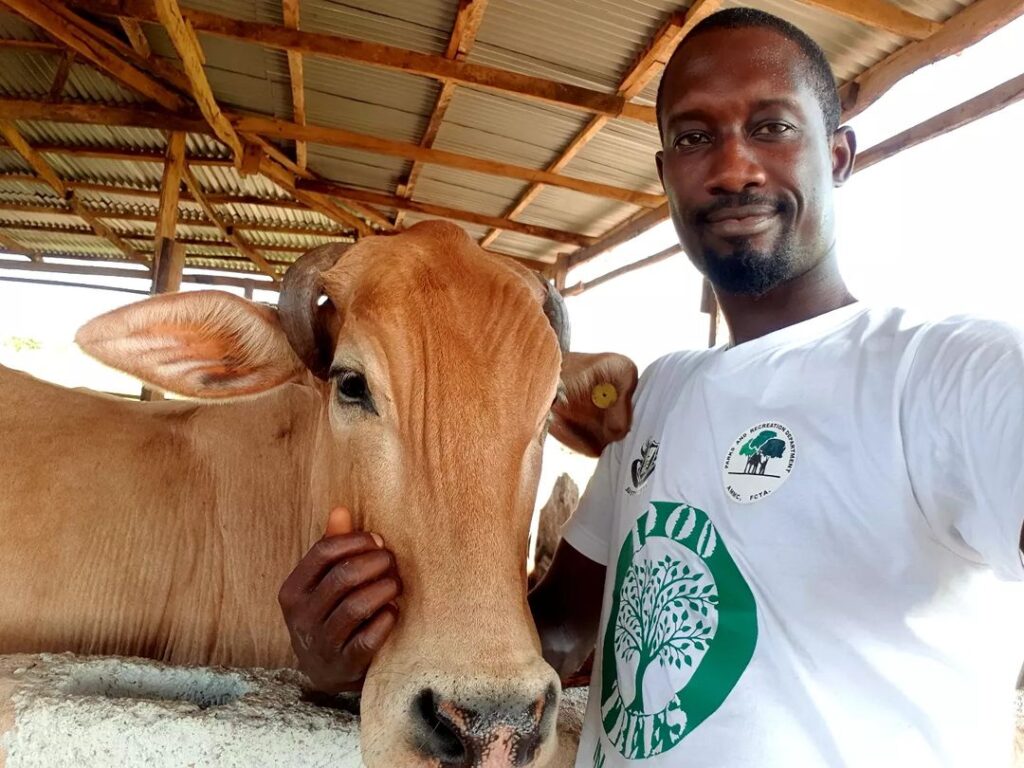🎥kamrumfarms
Rijo Shekari is the Founder of Kamrum Integrated Farms, and his mind works with precision.
On discovering gaps in Nigeria’s beef industry – the country’s supply depends on cows raised by nomadic herdsmen and importation, yet barely meets demand – Shekari set out to tackle problems related to both increased production and meat quality.
He developed the Ankolo Breeding Programme whose goal is to improve on the indigenous Bokolo (Sokoto Gudali) breed by crossbreeding it with the Angus cattle, known throughout the world for their ability to consistently produce the finest high quality beef.
The Ankolo cross-breed therefore derives its name from a combination of the Angus and the Bokolo breeds.
Says Shekari:
Our primary objective is to have a combination of the Bokolo’s hardiness and resistance to tropical parasites and diseases, and the Angus’s early maturity, fertility, longevity, and carcass quality.
For a nation with arable land of 34 million hectares and a rainy season six to seven months long, Nigeria should be at the forefront of beef production.
With an estimated arable land size of 1 million hectares the Netherlands exported 8.8 billion euros worth of meat in 2020. This is a nation with less than five months of rain. Nigeria can do better, and the Ankolo Breeding Programme seeks to address this.

Kamrum Integrated Farms currently works with government agencies such as the National Animal Production Research Institute (Zaria, Kaduna State) and the National Veterinary Research Institute (Vom, Jos – Plateau State) . as well as with experts across the beef cattle value chain to standardise the Ankolo breed.
